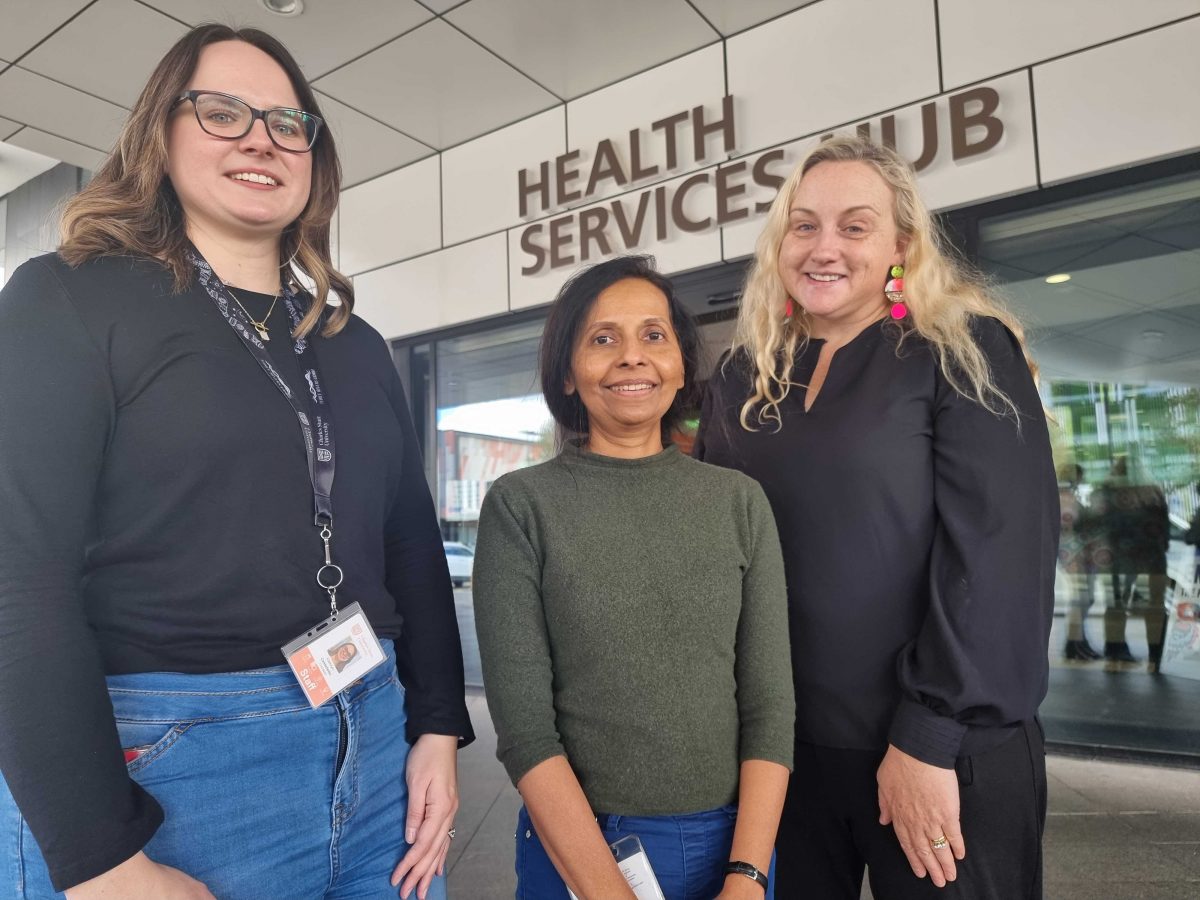
The ‘Microbiology in a nutshell’ workshop was organised by Charles Sturt University lecturer Kathryn Castelletto, Associate Professor in Immunology Thiru Vanniasinkam and MLHD Infection Prevention Control District Clinical Nurse Consultant Mary-Clare Smith. Photo: Shri Gayathirie Rajen.
Twenty nurses from across the region recently gathered at Wagga Wagga Base Hospital for an infection prevention workshop.
Murrumbidgee Local Health District (MLHD), Charles Sturt University (CSU) and Three Rivers formed a partnership to deliver the ‘Microbiology in a nutshell’ workshop for the nurses.
The workshop was organised by CSU’s Three Rivers Department of Rural Health lecturers Kathryn Castelletto and Dr Elyce Green, CSU’s Associate Professor in Immunology Thiru Vanniasinkam and MLHD Infection Prevention Control District Clinical Nurse Consultant Ms Mary-Clare Smith.
Nurses from Wagga, Holbrook, Harden, Tumut, Young, Finley, Culcairn and Leeton, who work in rural infection prevention roles attended the workshop at Wagga Wagga Base Hospital on Thursday (1 June).
Ms Castelletto said the multidisciplinary workshop aimed to provide clinical nurses and infection prevention nurses within the MLHD with microbiology and infection prevention knowledge.
“The knowledge has come from microbiologists, pharmacists and pathologists,” Ms Castelletto said.
“Hoping to increase their (nurses’) knowledge of infection prevention and ultimately help in their role within MLHD.
“We’re hoping it will be an annual collaboration for rural nurses to provide them infection prevention knowledge.”
Professor Vanniasinkam said the workshop supported nurses’ roles as leaders in infection control and prevention.
“A lot of them would be leading teams in their own various hospital they work in,” Professor Vanniasinkam said.
“We had discussion around practices associated with controlling infection and antimicrobial resistance … these are very important topics for these practitioners in their day-to-day roles.
“We want to create more confident nursing staff, who are breaking down barriers and open to going and asking questions,” she said.
Professor Vanniasinkam said the workshop was about providing better experiences for patients and it would have built on the microbiology knowledge the nurses learned at university as the new knowledge was more relevant in a hospital setting where stringent infection prevention was needed.
The first workshop was organised in 2019 and has been updated for the latest training with relevant findings and practices from the pandemic.
Ms Smith said the workshop provided vital knowledge that had been passed on to the nursing staff at different levels of experience.
The clinical nurse consultant said that during the height of the pandemic leads of infection prevention control played an important role.
“The aim of the workshop is to continue to capitalise on the IPC [infection prevention control] leads’ current expert knowledge and skills of key aspects of microbiology in their roles through involving experts in the field whilst also achieving the goal of publishing research related to the day,” Ms Smith said.
